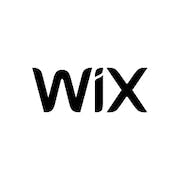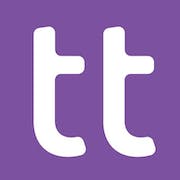Are you looking for the best event booking software? Look no further than our comprehensive buyer's guide! Read on top features and find the perfect solution for your needs.
Are you tired of struggling with manual event planning processes? From multi-day conferences to single-day workshops, managing and running events can be a daunting and overwhelming task. Fortunately, event booking software can provide a solution to simplify the event planning process, streamline operations and improve the overall attendee experience. However, with a wide range of event booking software options on the market, it can be challenging to choose the right one for your business. This comprehensive buyer's guide will examine features and other crucial factors to help you make an informed decision about which event booking platform will best suit your needs.
What is event booking software?
This is a tool used to simplify and streamline the process of booking and managing events. We all know that planning events can be a hassle, with many moving parts that require coordination to ensure everything runs smoothly. Event booking technology aims to simplify this process with features like online registration, automated communication, and real-time tracking of event data. Its primary goal is to provide an all-in-one solution for event organizers to manage their events end-to-end. This means that from registration to post-event analysis, the system enables businesses to run their events smoothly and efficiently.
Its common use cases include:
- Conference and seminar management
- Online course and workshop management
- Concert and festival organization
- Sports and fitness management
- Trade shows and exhibitions
- Non-profit and charity events management
- Corporate events management
Using a booking solution streamlines all of these event types and ensures that things run seamlessly, and takes care of essential aspects like payment processing, attendee management, and communication. The types of companies that primarily use this tool include brands that run regular events, such as trade shows, conferences, sports facilities, fitness companies, educational institutions, non-profit organizations, and event management companies.
What are the benefits of implementing an event booking tool?
Booking solutions have transformed the way businesses handle their events with several of its benefits which include:
- Saves time and effort: A event booking system automates tedious tasks, like data entry and agenda scheduling, and streamlines the entire event management process, which saves precious time and effort.
- Increases revenue: By having a clear understanding of the number of registrations, businesses can make informed decisions regarding ticket prices, promotions, and incentives. This can lead to an increase in revenue.
- Improves data accuracy: It captures accurate data, eliminates data entry errors, and eliminates the need for manual reconciliation of data, which ensures data accuracy throughout the event.
- Enhances attendee experience: With a booking tool, attendees can easily register and receive personalized communications about the event. This translates to a better attendee experience and improved satisfaction.
- Provides analytics and reporting: The solution provides real-time insights and data through its analytics and reporting feature, which helps businesses to evaluate the success of their event. This also helps businesses to improve their future events.
10 key feature of an event booking app
Event planners, conference coordinators, and other professionals who regularly organize event have increasingly adopted this essential tool because there are many features that make it indispensable in the industry. Here are 10 of the most common ones:
1. Online registration: It allows individuals to register for events online. It simplifies the registration process and eliminates the need for paper registration forms.
2. Payment processing: Most event booking software solutions enable attendees to pay online. It eliminates the need for manual payment processing, which can be time-consuming and complicated.
3. Ticketing: The system generates tickets for attendees, which can be emailed or printed. It allows attendees to access the event easily and provides electronic or physical verification.
4. Customizable registration forms: It also enables the creation of customized registration forms. It helps to gather specific information about the attendees and their preferences.
5. Social media integration: Many event booking software systems integrate with popular social media platforms. It allows organizers to promote their events on social media and drive attendance via ticket sales. Social media is utilized by 60% of virtual event planners as an effective channel to secure valuable attendee registrations.
6. Analytics: A event booking package provides valuable insights into event performance. Organizers can analyze registration and ticket sales data to make informed decisions about the event's future.
7. Mobile access: Most of them are mobile responsive. It enables attendees to register, buy tickets, and access event information from their mobile devices, which are increasingly popular and critical.
8. Customizable event pages: An event booking program enables the creation of personalized event pages. It allows organizers to create a unique branding experience, share content about the event and speakers, and provide critical updates.
9. Customizable email templates: One of the most critical aspects of event planning is staying in touch with attendees. A booking application allows organizers to create customized email templates to communicate with attendees effectively.
10. Real-time reporting: The solution provides real-time reporting. It enables organizers to track attendee numbers, ticket sales, and revenue. It ensures data accuracy, which can make future planning and decision-making more informed.
As you can see, event booking software comes with numerous features that make event planning more manageable and successful. These ten features demonstrate the technology's versatility and effectiveness, enabling substantial time savings, cost reductions, and efficient event organization.
Key considerations when adopting an event booking solution
Event booking software can streamline the event management process and provide a seamless experience for both event organizers and attendees. However, not all of them are created the same. When purchasing this solution, businesses should consider several factors to ensure they are getting the most out of their investment.
First, businesses should consider the system's ease of use. The program should be intuitive and easy to navigate, with a user-friendly interface that requires minimal training. This can reduce the learning curve for event organizers and make it easy for them to manage events.
Second, compatibility is key. The tool should be compatible with various devices and operating systems to ensure all users can access it. This is particularly important for attendees who may be using different types of devices to access the event, such as mobile devices or laptops. Compatibility also extends to third-party integrations, such as payment gateways and social media platforms.
Third, consider its customization features. The ability to customize the software to fit your business needs can be critical, especially in industries with unique requirements or processes. Customization can enhance the software's functionality and make it more efficient.
Fourth, the security of the platform is crucial. It should be able to protect sensitive data, such as personal and payment information. Look for features such as secure payment gateways, data encryption, and real-time fraud detection to ensure the protection of sensitive data.
Fifth, accessibility and support are vital. The application should be accessible to users with disabilities, such as screen readers or voice commands. Additionally, the provider should offer support services, such as technical support and training, to help businesses make the most of the app.
Finally, consider the cost-effectiveness of the package. While price is an essential factor, businesses should also consider the software's long-term value. Look for features such as automated scheduling, data analytics, and reporting, which can provide long-term benefits to the business's event management processes.
Careful consideration of these factors can help businesses choose the right technology to streamline their event management processes and provide a seamless experience for both organizers and attendees.
Market trends for event booking software
As we head further 2024, the event management industry is undergoing a rapid transformation. From virtual event spaces to augmented and virtual reality technologies, there are a plethora of trends that are set to dominate the industry soon. A report from the data bridge market research shows that the reservation and booking software market will probably grow at a rate of 12.50% in the curren forecast period heading to 2027.
Firstly, event booking software is expected to be more customer-centric. This means that providers of this application will focus more on improving user experience and putting customers at the center of everything they do. Secondly, automation and AI integration will continue to gain traction, with the ability to use data to predict attendee behavior and personalize the event experience.
Thirdly, we are likely to see an increase in the use of mobile devices as attendees gain greater control over event scheduling and customization. Fourthly, hybrid events and virtual event spaces are becoming increasingly popular, enabling attendees to participate from anywhere in the world with ease.
Finally, sustainability is also set to be a major trend in the event booking software industry. More and more businesses are becoming eco-conscious, and event management companies are no exception. Therefore, expect to see the incorporation of eco-friendly solutions and tools that help companies reduce their carbon footprint.
Conclusion
As companies explore the various software options available on the market, consider the specific requirements of your events and the features that will best support your goals. By investing in a robust and versatile event booking system, you set the stage for seamless planning, efficient execution, and ultimately, the guaranteed successful events. Embrace the power of technology to elevate your event management process, and watch as your events not only meet but exceed expectations.









